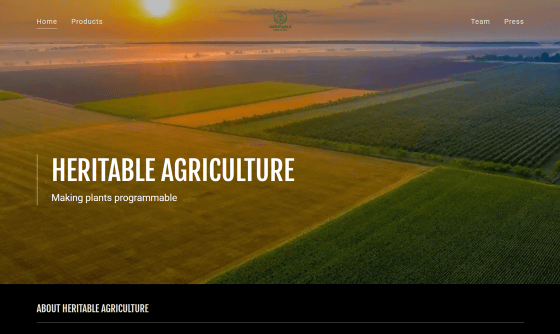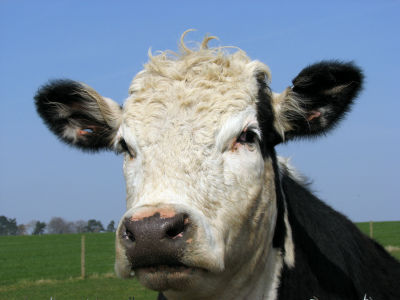Heritable Agriculture, a startup that uses AI to revolutionize agriculture, is now independent from Google's sister company

Heritage Agriculture
https://heritable.ag/

Introducing Heritable Agriculture
https://x.company/blog/posts/heritable-agriculture/
Tech News | American Press Technology News
https://www.businesswire.com/news/aptechnologynews/20250130584800/en/Heritable-Agriculture-Launches-From-X-The-Moonshot-Factory-to-Improve-Crops-and-Sustainably-Feed-the-World
Google's X spins out Heritable Agriculture, a startup using AI to improve crop yield | TechCrunch
https://techcrunch.com/2025/02/02/google-x-spins-out-heritable-agriculture-a-startup-using-ai-to-improve-crop-yield/
On January 28, 2025 local time, it was announced that Heritable Agriculture, a startup that uses AI to improve agriculture, has become independent from X, a subsidiary of Alphabet. The word 'Heritable' in the company name means 'heritable,' and Heritable Agriculture is trying to improve crop yields and the cost of breeding by combining genetics and AI.
CEO and co-founder Dr. Brad Zamft claims that plants are 'solar-powered, carbon-native, self-organizing machines' that use sunlight and water as fuel. However, agriculture is one of the most costly industries on the planet, accounting for about half of the land that humans can inhabit, a quarter of anthropogenic greenhouse gas emissions, and 70% of groundwater withdrawals.
Heritable Agriculture has developed machine learning models that use advanced computational biology technologies to identify and understand the function of specific plant genomes. Understanding these genomes can help select varieties with traits suited to local climates, increasing crop yields, reducing water needs and improving carbon storage capacity in roots and soil.
To test their model, the team grew thousands of plants in special growth chambers at X's research facility, photographing and measuring their growth every hour. This allowed them to track how accurately they could predict when plants would flower and understand the effect that specific genomic changes have on germination time.

He also spent time working in agricultural facilities in California, Wisconsin and Nebraska, collecting data on a variety of crops, such as the number of kernels on a corn ear and the bitterness of vegetables.
'We developed a system to collect and freeze hundreds of samples in liquid nitrogen, and dug up and washed thousands of plant roots, despite the dust, dirt and sweltering heat,' said Dr. Zamft. In the photo below, co-founder and experiment leader Dr. Davide Sosso prepares the liquid nitrogen for preserving plant samples.

At the time of writing, Heritable Agriculture offers services such as identifying genomes that enable efficient crop production in specific environments and predicting plant growth performance. However, the company has not yet developed genetically modified crops, and it is not on its roadmap. Instead, it is focusing on needs such as 'identifying what to grow' and 'crossing crops to create better varieties.'
'To feed a growing world population, we need smart, sustainable ways to increase food production. However, the current pace and cost of crop improvement puts the global food system at risk and limits agricultural growth. Our AI-powered biotechnology platform has the potential to address key challenges facing the agriculture industry, including reducing the cost of crop improvement, increasing yields, improving disease resistance and accelerating the development of new varieties,' said Dr. Zamft.
Heritable Agriculture also works to replant deforested areas with native tree species to enable sustainable forestry. Early research suggests that Heritable Agriculture's AI can improve tree health and resilience 400 times faster than existing processes.
Heritable Agriculture has successfully raised funds from venture capital firms such as FTW Ventures , Mythos Ventures and SVG Ventures . Jonathan Eng, a partner at Mythos Ventures, commented, 'We are impressed with the ambition and expertise of the Heritable Agriculture founding team, which is necessary to truly revolutionize agriculture with AI.' 'The world needs companies like this.'
Related Posts:
in Note, Posted by log1h_ik







